Rainbow laces: Anti-homophobia group criticised by campaigners
- Published
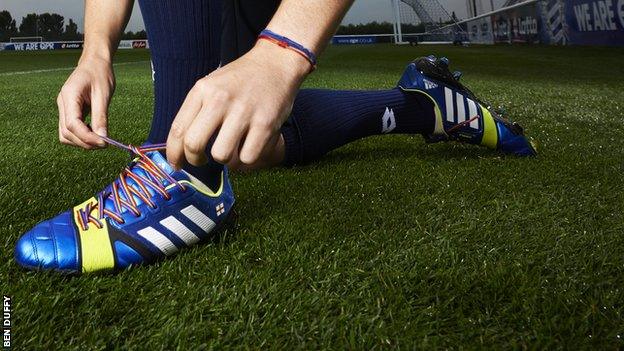
An anti-homophobia group urging players to wear rainbow boot laces this weekend has been criticised for using messages which rely on "sexualised innuendo and stereotypes about gay men".
Gay rights campaigners Stonewall launched the initiative, Right Behind Gay Footballers, which is backed by a leading chain of bookmakers.
But other equality bodies are concerned about language used by the campaign.
Some clubs, such as Manchester United, have chosen not to wear the laces.
But Everton, who are sponsored by the same bookmakers, have said some of their players will wear them.
Toffees manager Roberto Martinez said: "The players are well aware of the meaning of the campaign and we are happy to support it."
Queens Park Rangers midfielder Joey Barton has also backed the campaign, which has received a positive response on social media sites.
Stonewall sent laces to all 92 professional teams in England and 42 professional teams in Scotland on Monday and is also promoting a billboard campaign around the UK.
But Football v Homophobia (FvH), another body aiming to improve education on the subject and who rejected the chance to work on this initiative, said terms such as 'Right Behind Gay Footballers' reinforced "stereotypes that ensure homophobia exists" and "blurred the territory" between homophobic language and football banter.
FvH said a number of people had already written innuendo-laden phrases on bookmaker Paddy Power's Facebook page.
It also said Brighton and Hove Albion Supporters' Club had recently called on authorities to help tackle homophobic abuse at Brighton games which was often dismissed as 'banter'.
"We applaud the sentiments behind the idea central to the 'Rainbow Laces' campaign, namely solidarity with gay players," FvH said in a statement.
"[But] we feel it is incongruous to run a campaign aiming to change football culture whilst using language which reinforces the very stereotypes and caricatures that, in the long term, ensure that homophobia persists."
Stonewall told BBC Sport it teamed up with Paddy Power because it can "talk the language of fans and players" and, while the slogan might be risque, the "overall message was to make sure that homophobic abuse does not have a place in the game".
A spokesman said: "We don't think it's comparable to the worst abuse. Overall, it is encouraging and engaging support for gay players and attempts to kick homophobia out of football."
While several clubs BBC Sport has spoken to regarded the campaign as raising an important issue, the lack of notice given them and the campaign's links to a bookmaker known for publicity stunts have caused a few problems.
In 2012, Paddy Power had a TV advert suspended after it encouraged viewers to guess the gender of women at the Cheltenham horse racing festival.
Paddy Power's involvement has also presented problems for clubs backed by different betting partners, while some clubs have said they will continue to support key issues via groups such as Kick it Out.
A spokesman for the bookmaker said Stonewall was consulted throughout the project and it was careful to try to strike the right balance between a campaign that would make an impact and one that would not cause offence.
He added it was the bookmaker's belief that there was no place for homophobia in football and the response from Stonewall and the Gay Football Supporters Network had been positive so far.
The Premier League said in a statement that it would leave it up to individual clubs and players to decide whether they should support new campaign.
It said: "The underlying message behind this campaign is a good one. Indeed, we and our clubs have worked hard with government and other stakeholders to ensure the whole equalities agenda is something we are fully aware of and engaged in.
"However, we were not consulted about this particular campaign. Had we been involved earlier in the process, we could have worked with Stonewall... and would be happy to talk to them in the future to discuss ways in which we could work together."
The FA has taken a similar view and a spokesman said: "While anti-homophobia messaging is something we are supportive of, our preference is for consultation and involvement from an early stage, especially in consideration of commercial partners and the co-ordination of approaches across the game."
- Published19 September 2013
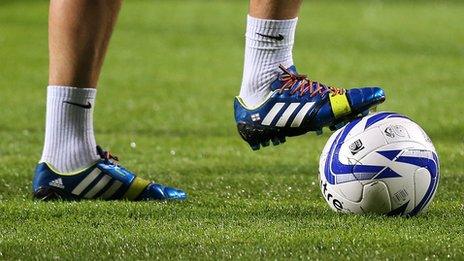
- Published16 September 2013
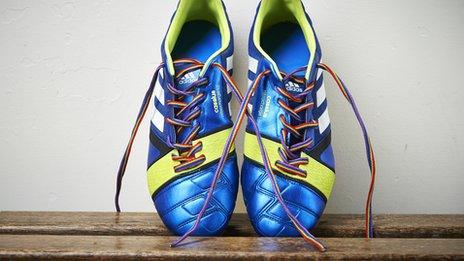
- Published18 March 2013
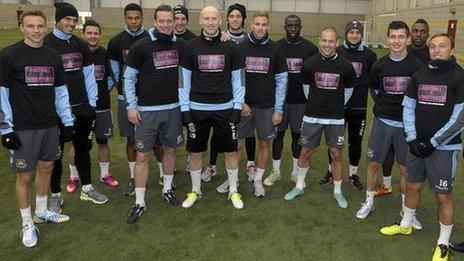
- Published15 February 2013
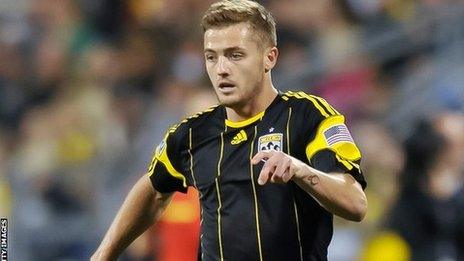
- Published20 February 2012
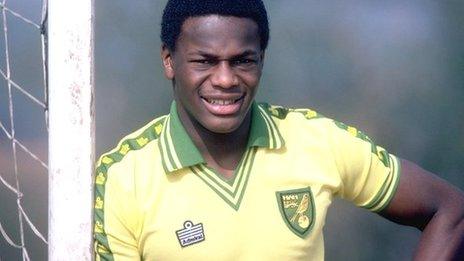
- Published7 June 2019
